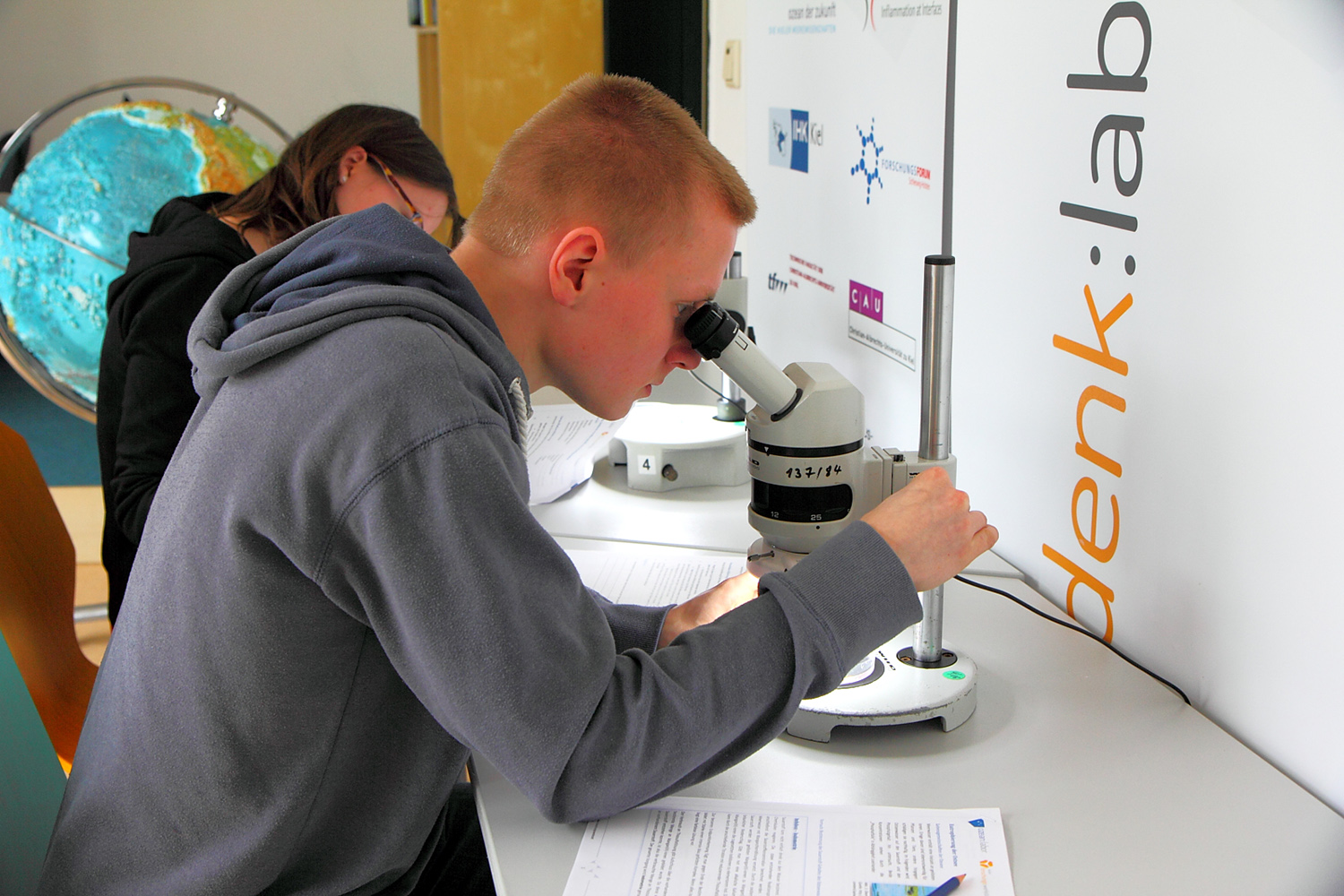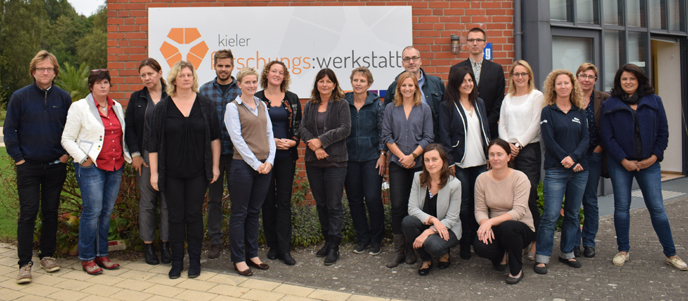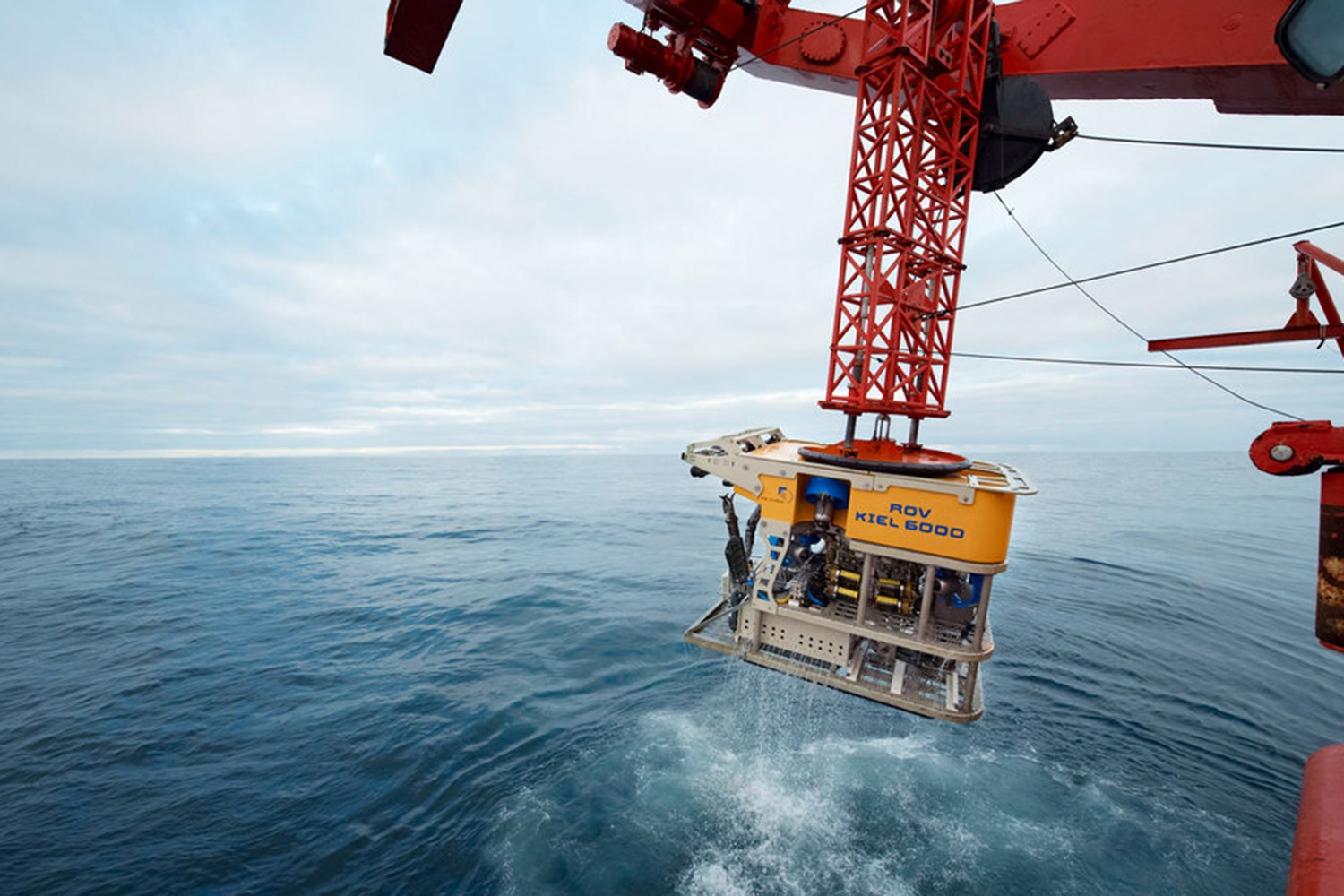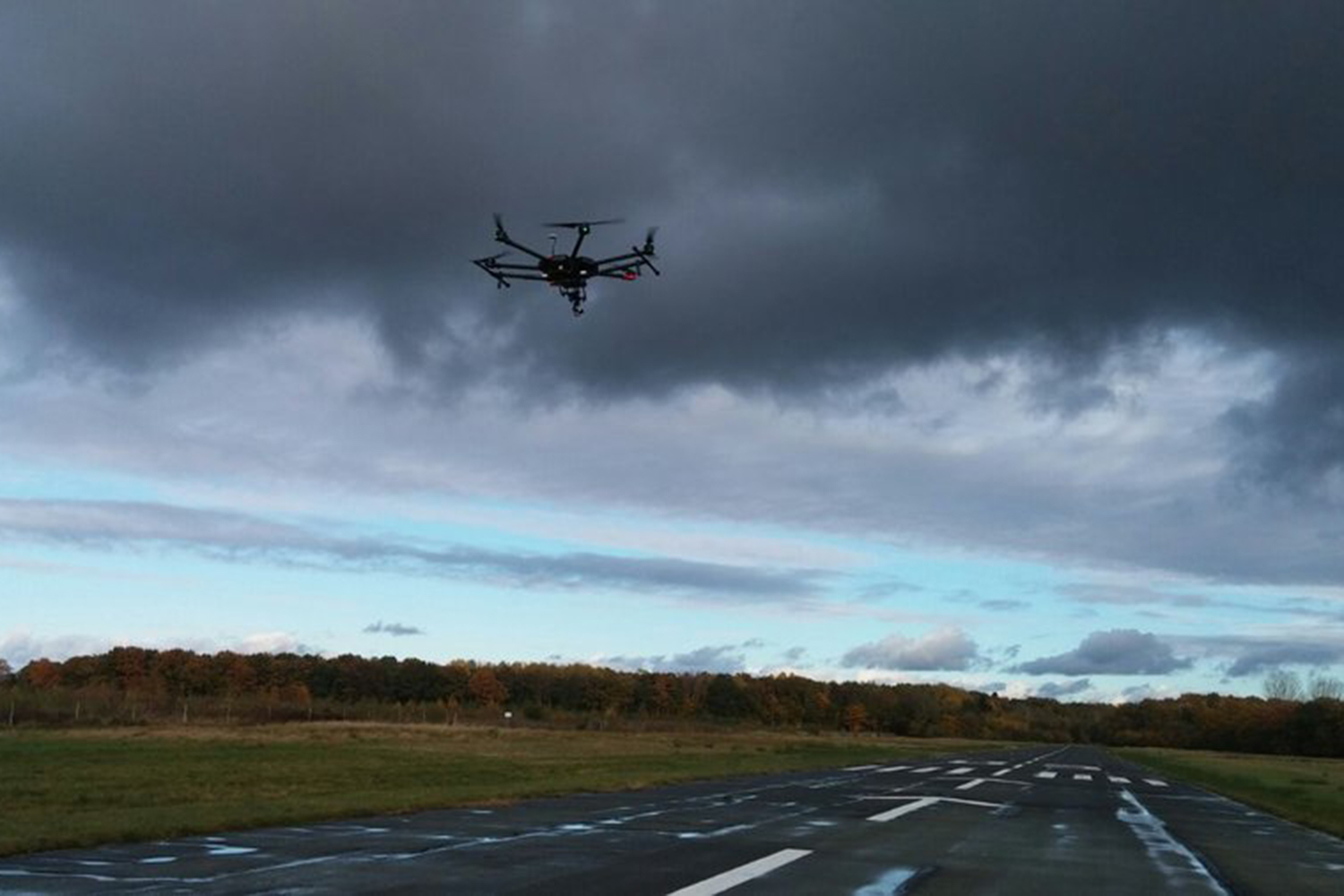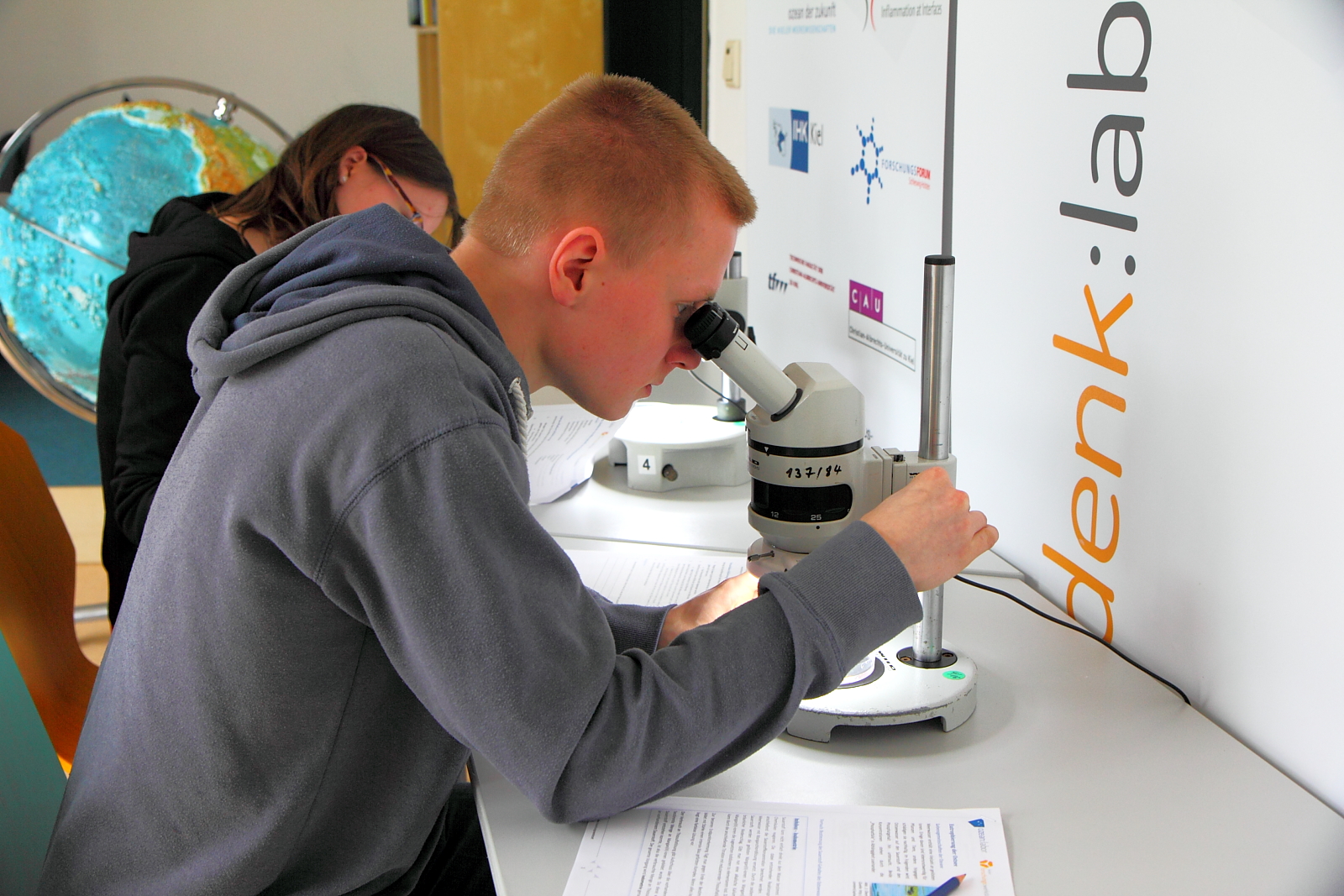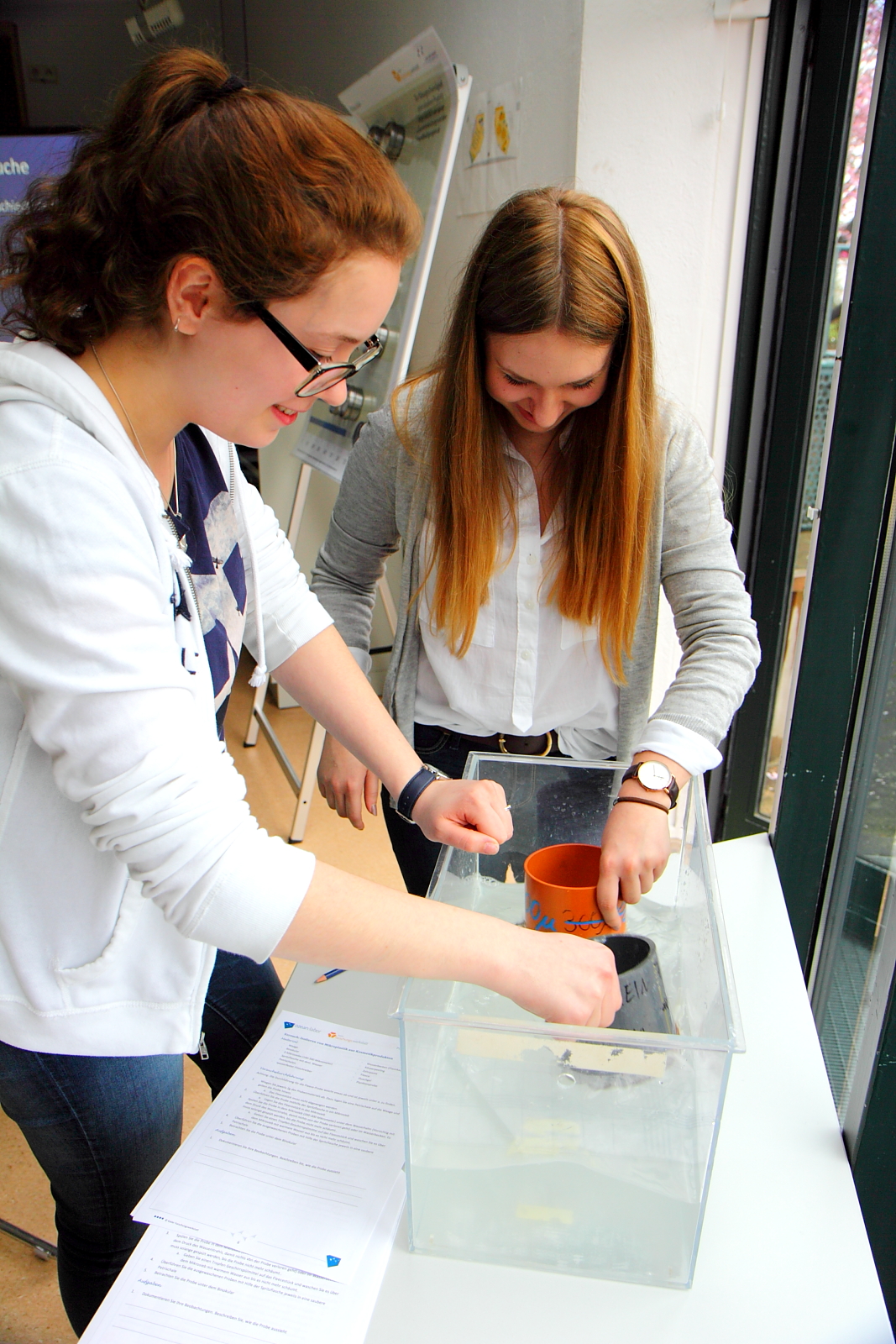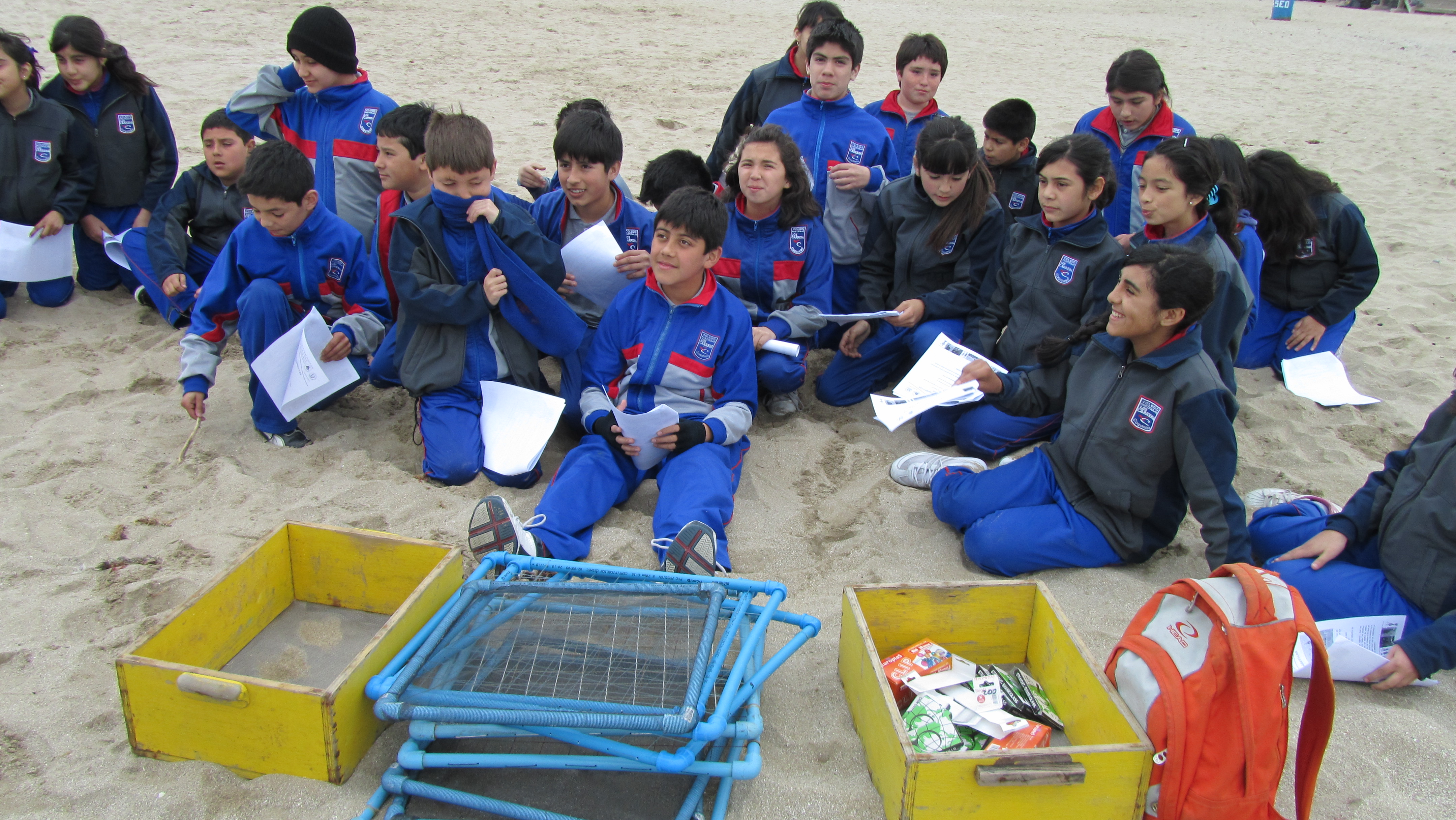The aim of the project, which will be mainly carried out by the ocean: lab of the Kiel ‘Forschungswerkstatt’ and the Chilean University Catolica de la Norte in Coquimbo, is to involve school students in current research concerning the topic plastic waste, to increase their consciousness of the critical use of plastic products and to contribute to the responsible use of the environment. Moreover, they will learn about intercultural exchange through the cooperation with Chilean school students.
Up to now, 600 school students and more than 20 teachers have been involved in the project“, says Katrin Kruse, the teacher in charge of the first citizen science project “On the track of plastic waste” of the Kiel ‘Forschungswerkstatt’. “Both students and teachers are enthusiastic, show the will to change things and a great interest in integrating projects in the schools,” summarizes Kruse about the first successful phase of the project in the past year.
This year, plastic waste is still a current topic. Growing worldwide consumption has already led to a situation where in the past decades an increasing amount of waste has been harming – not only – coastal ecosystems with lasting effects. By now, you can find every kind of waste in the oceans far away from the shore – whether floating on the water surface, drifting in the water column or deposited on the sea floor. Three fourths of this waste consists of plastic which decompose only slowly in the sea or not at all. The images of polluted beaches and animals caught in nets presented in the media repeatedly raise concern among citizens. In many places, beach cleaning events have been created involving volunteers, among them also school students. However, this is only a small contribution to the alleviation of the garbage problem.
In the citizen science project “On the track of plastic waste”, young researchers deal with numerous questions. Where are the biggest deposits of plastic waste to be found on the German and Chilean coasts? What items make up plastic waste? And where does the waste come from?
These and other questions will be answered within the international network of school students, teachers and scientists. Taking samples at the beach, presenting the results and communication in international teams create important learning opportunities for the school students during the course of the project.
The project is scheduled to run from April 11 to July 2016. After a presentation phase, in which the learning groups will present themselves to the tandem partner (the respective learning group), data collection will take place at the beach. The data, which will be collected in Germany and Chile, will be uploaded to the website www.save-ocean.org and compared. The project will end with the learning groups presenting the project and their results to the public. Here the students will transfer what they have learned and the topic will have a stronger outreach to the public. The exchange with Chilean schools about the collected results as well as the comparison of regional circumstances will take place on the project website, which serves as a communication platform for the students and should foster not only scientific but also cultural exchange.
Links
www.save-ocean.org (about the citizen science project “On the track of plastic waste”)
www.forschungs-werkstatt.de (about the Kiel ‘Forschungswerkstatt’)
Background
The term ‘citizen science’ summarizes projects in which citizens participate in current research. In the project “On the track of plastic waste” the participants are school students as well as their teachers. It will be conducted in cooperation with the Kiel University ‘Forschungswerkstatt’ and the “Cientificos de la Basura” of the Chilean University Catolica del Norte in Coquimbo. And it will be supported by the Lighthouse Foundation, the Cluster of Excellence “The Future Ocean”, the Leibniz Institute for Science and Mathematics Education (IPN), the Kiel ‘Forschungswerkstatt’, as well as the Ministry of School and Professional Education of the State of Schleswig-Holstein. From the Chilean side, the project is funded by the Universidad Catolica del Norte, the Center for Advanced Studies in Arid Systems (CEAZA) and the Chilean science community (Explora-Conicyt).
Contact
Katrin Kruse and Dr. Katrin Knickmeier
info@forschungs-werkstatt.de
Tel.: 0431-880-5916
www.forschungs-werkstatt.de
…
Press material
Examining very small plastic particles under a microscope
School students from the 12th grade of Selma-Lagerlöf High School are examining very small plastic particles in the ocean: lab of the Kiel ‘Forschungswerkstatt’.
Photo: Anna Thielisch, the Kiel ‘Forschungswerkstatt’
Rinsing out plastic particles
Students from the 12th grade of Selma-Lagerlöf High School rinse out micro plastic from cosmetic products.
Photo: Anna Thielisch, the Kiel ‘Forschungswerkstatt’
